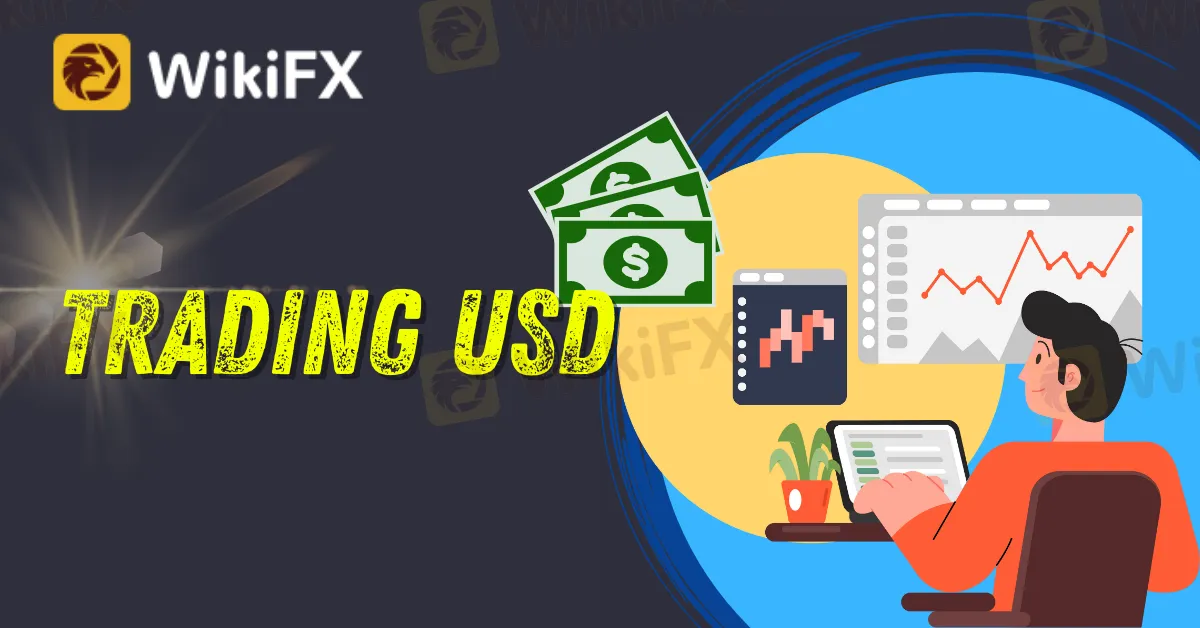简体中文
繁體中文
English
Pусский
日本語
ภาษาไทย
Tiếng Việt
Bahasa Indonesia
Español
हिन्दी
Filippiiniläinen
Français
Deutsch
Português
Türkçe
한국어
العربية
TRADING USD
Abstract:Traders may trade the US dollar (USD) in a variety of methods, including the foreign exchange market (forex) and futures contracts.

Traders on the forex market may purchase or sell the USD against other major currencies such as the euro (EUR), Japanese yen (JPY), and British pound (GBP). The supply and demand for the currency influence the value of the USD, and traders may benefit from variations in the value of the USD by buying low and selling high.
Futures contracts, which are standardized agreements to purchase or sell a certain currency at a specified price on a future date, may also be used to trade the USD. Futures contracts are exchange-traded and enable traders to bet on the direction of the USD or hedge against currency risk.
It is important to understand that trading the USD, or any other currency, has inherent risks, including the danger of losing money. Before trading the USD or any other currency, traders should thoroughly assess their risk tolerance and investment objectives. They should also be aware of the different elements that might influence the US dollar's value, such as economic indicators, geopolitical events, and global economic circumstances.
What is USD Index?
The US Dollar Index (USDX) is a measure of the US dollar's (USD) value in relation to a basket of international currencies. The USDX is used to measure the performance of the US dollar against a basket of currencies thought to be the US's most significant trade partners.
The USDX is calculated by averaging the exchange rates of the US dollar against the following currencies:
Euro (EUR) (EUR)
Japanese yen (JPY)
British pound (GBP)
Canadian dollars (CAD)
Swedish krona (SEK)
Swiss franc (CHF)

The USDX is stated as an index number, with a base value of 100.0 established in March 1973. A number more than 100.0 suggests the USD is stronger than the base value, while a value less than 100.0 implies the USD is weaker.
The USDX is widely used as a benchmark for the strength of the USD by traders and investors, and it is often used to hedge currency risk or speculate on fluctuations in the value of the USD. However, it is crucial to remember that the USDX reflects just a subset of the currencies against which the USD is traded, and it may not correctly reflect the USD's overall strength or weakness in the foreign currency market.
Forecasting USD Value
It's impossible to say if the US dollar (USD) will be in a bullish or negative market. The value of a currency is governed by a variety of variables, including the health of the country's economy, interest rate levels, and inflation levels. These characteristics may alter over time, causing currency value changes. Furthermore, the USD is impacted by global economic circumstances and geopolitical developments, both of which may affect its value.
Traders and investors may use a variety of economic indicators, such as GDP growth, employment statistics, and inflation rates, as well as geopolitical events and global economic circumstances, to assess if the USD is in a bullish or bearish market. However, it is crucial to remember that the value of any currency may change dramatically over short periods of time and that these fluctuations are not always predictable.
Follow us for more Forex News.
Download and install the WikiFX App on your mobile phones from the download link below to stay updated on the latest news, even on the go.
Download link: https://www.wikifx.com/en/download.html

Disclaimer:
The views in this article only represent the author's personal views, and do not constitute investment advice on this platform. This platform does not guarantee the accuracy, completeness and timeliness of the information in the article, and will not be liable for any loss caused by the use of or reliance on the information in the article.
Read more

The Daily Habits of a Profitable Trader
Every professional trader follows a structured approach to ensure they are well-prepared, disciplined, and able to seize opportunities with confidence. Whether you are a seasoned investor or an aspiring trader, adhering to a robust daily checklist can significantly enhance your performance. Use this checklist to check if you are a qualified trader

The Impact of Interest Rate Decisions on the Forex Market
Interest rate changes determine currency attractiveness, influencing capital flows and exchange rate trends. Understanding this mechanism helps investors navigate the forex market effectively.

How a Housewife Lost RM288,235 in a Facebook Investment Scam
A 47-year-old housewife in Malaysia recently fell victim to an online investment scam, losing a substantial sum of RM288,235 after engaging with a fraudulent scheme advertised on Facebook.

A Trader’s Worst Mistake: Overlooking Broker Reviews Could Cost You Everything
In today’s digital age, reviews influence nearly every decision we make. When purchasing a smartphone, television, or home appliance, we pore over customer feedback and expert opinions to ensure we’re making the right choice. So why is it that, when it comes to choosing an online broker where real money and financial security are at stake many traders neglect the crucial step of reading reviews?
WikiFX Broker
Latest News
The Withdrawal Trap: How Scam Brokers Lure Victims into Paying More
FCA to Investors: Think Twice Before Trusting These Brokers
Trump\s tariffs: How could they affect the UK and your money
Trump gambles it all on global tariffs he\s wanted for decades
TradingView Brings Live Market Charts to Telegram Users with New Mini App
Trump tariffs: How will India navigate a world on the brink of a trade war?
Interactive Brokers Launches Forecast Contracts in Canada for Market Predictions
Authorities Alert: MAS Impersonation Scam Hits Singapore
Stocks fall again as Trump tariff jitters continue
IG Group Acquires Freetrade for £160M to Expand UK Investment Market
Currency Calculator







